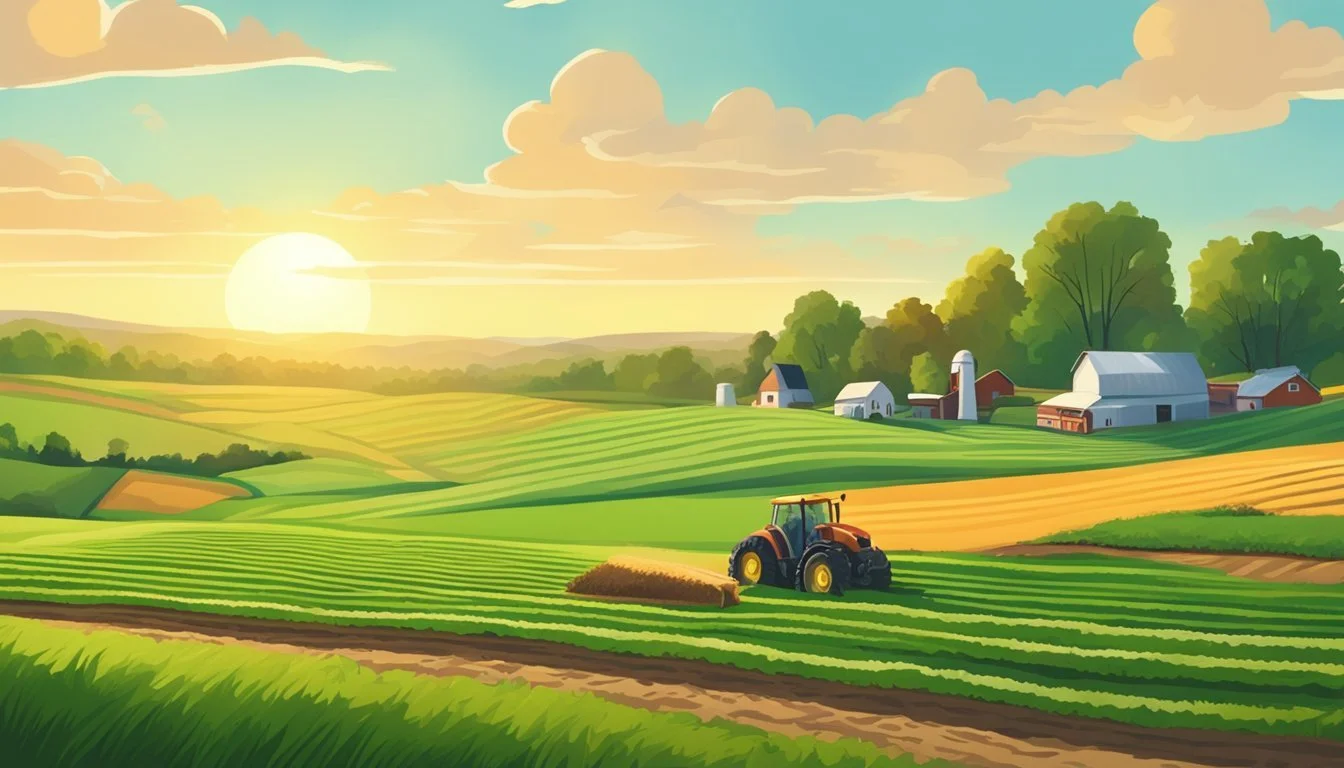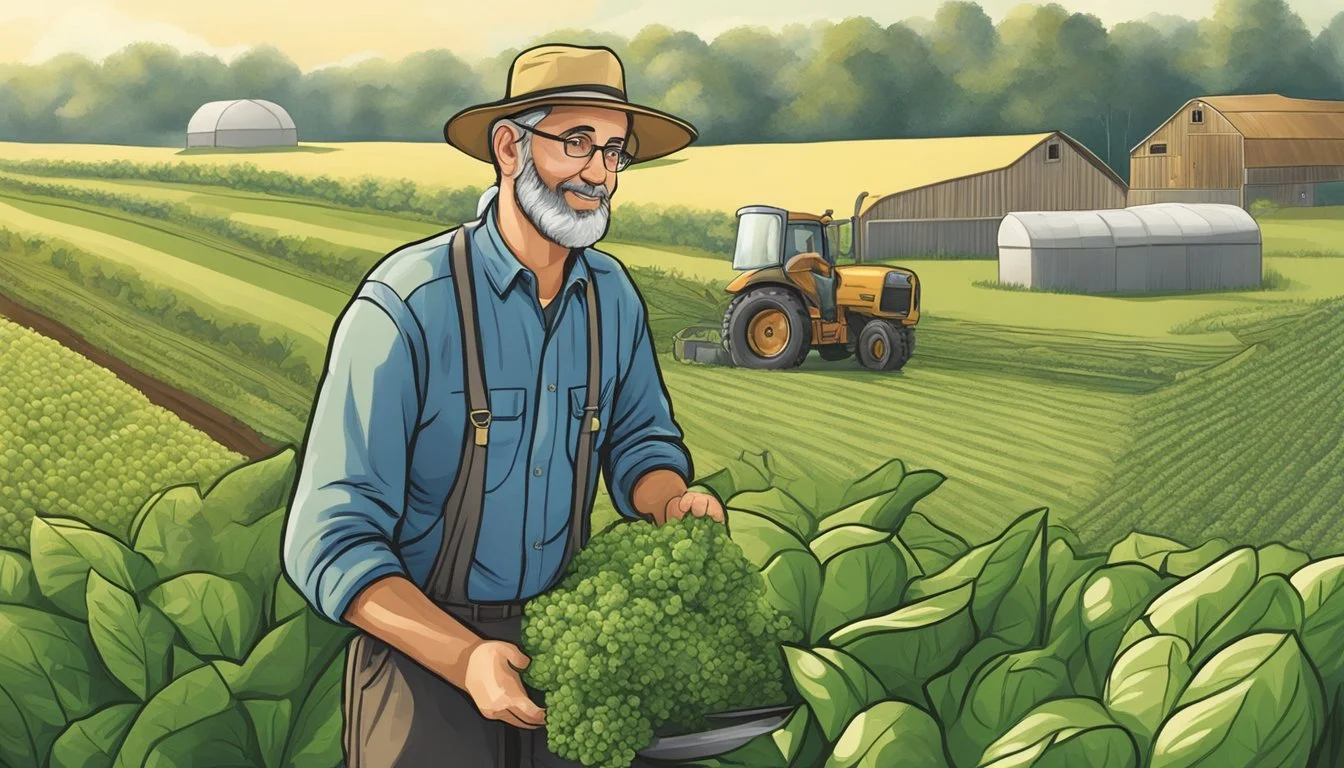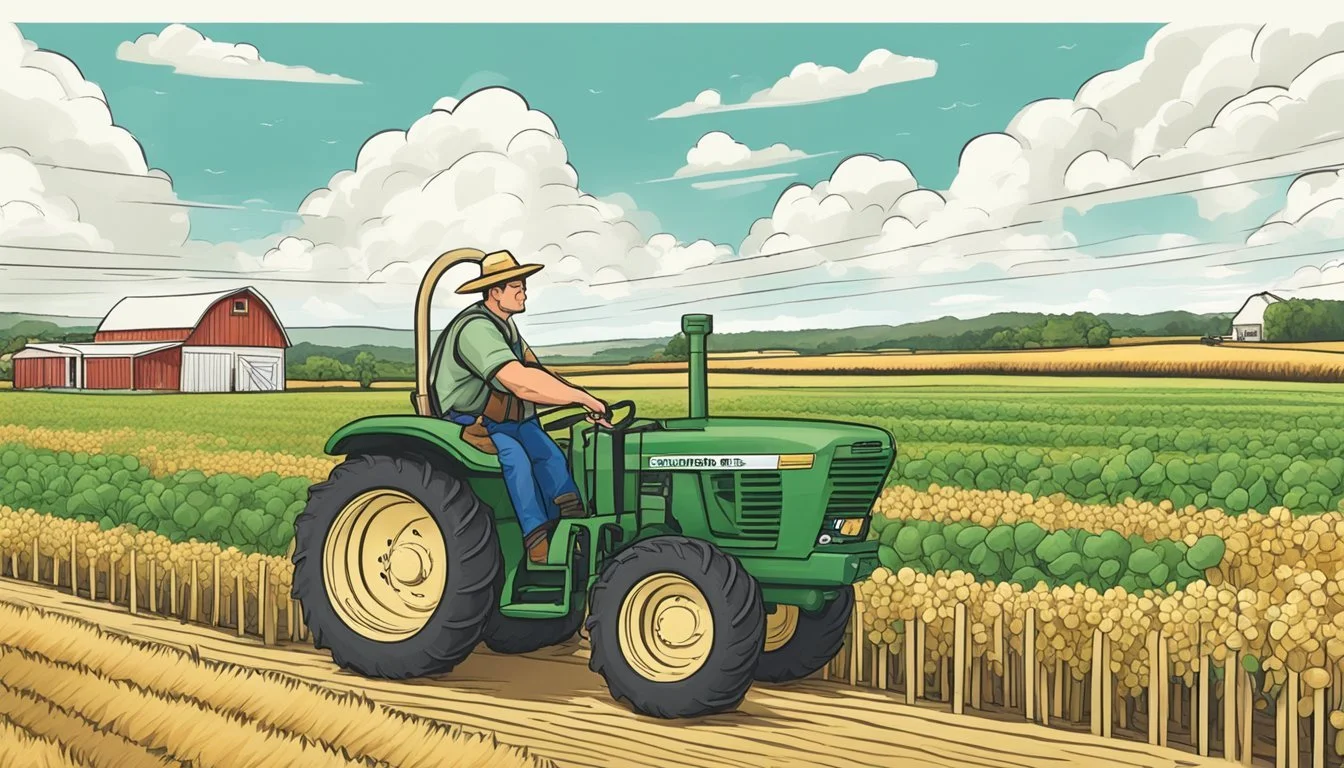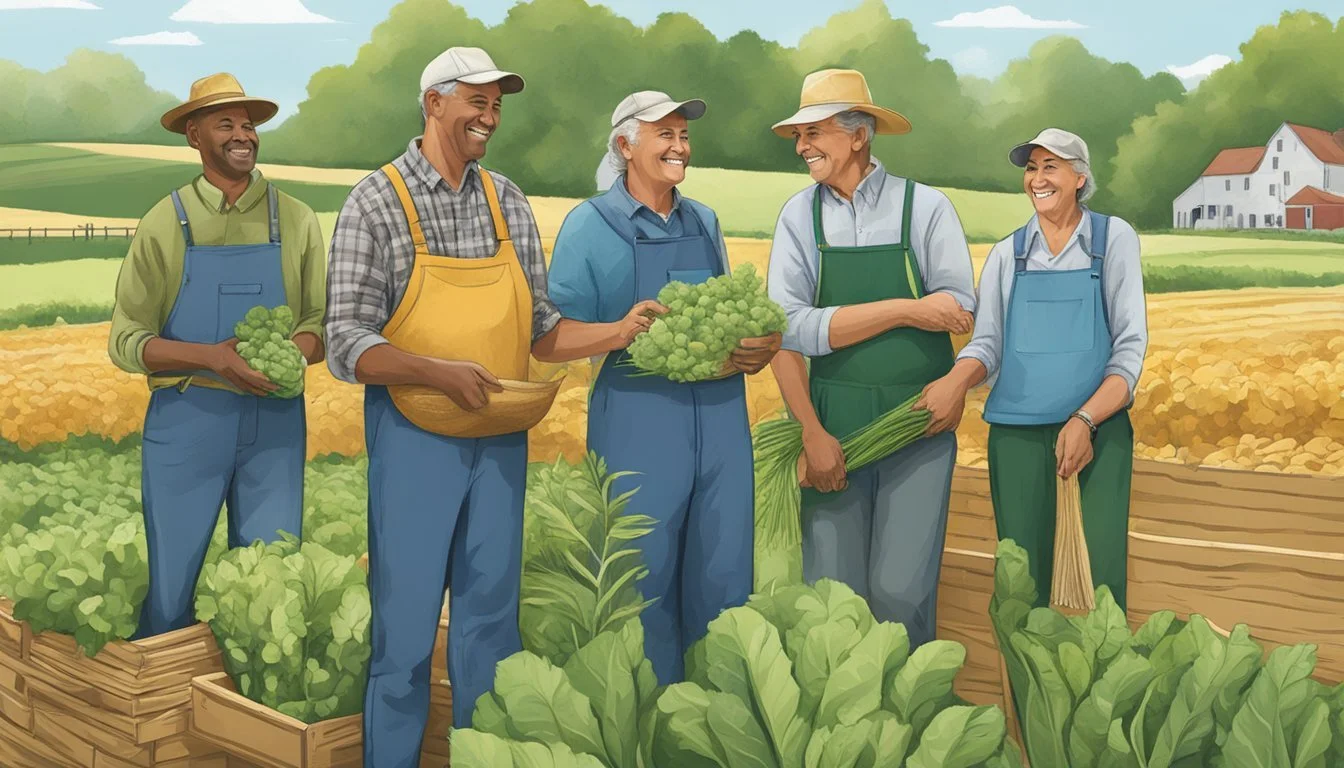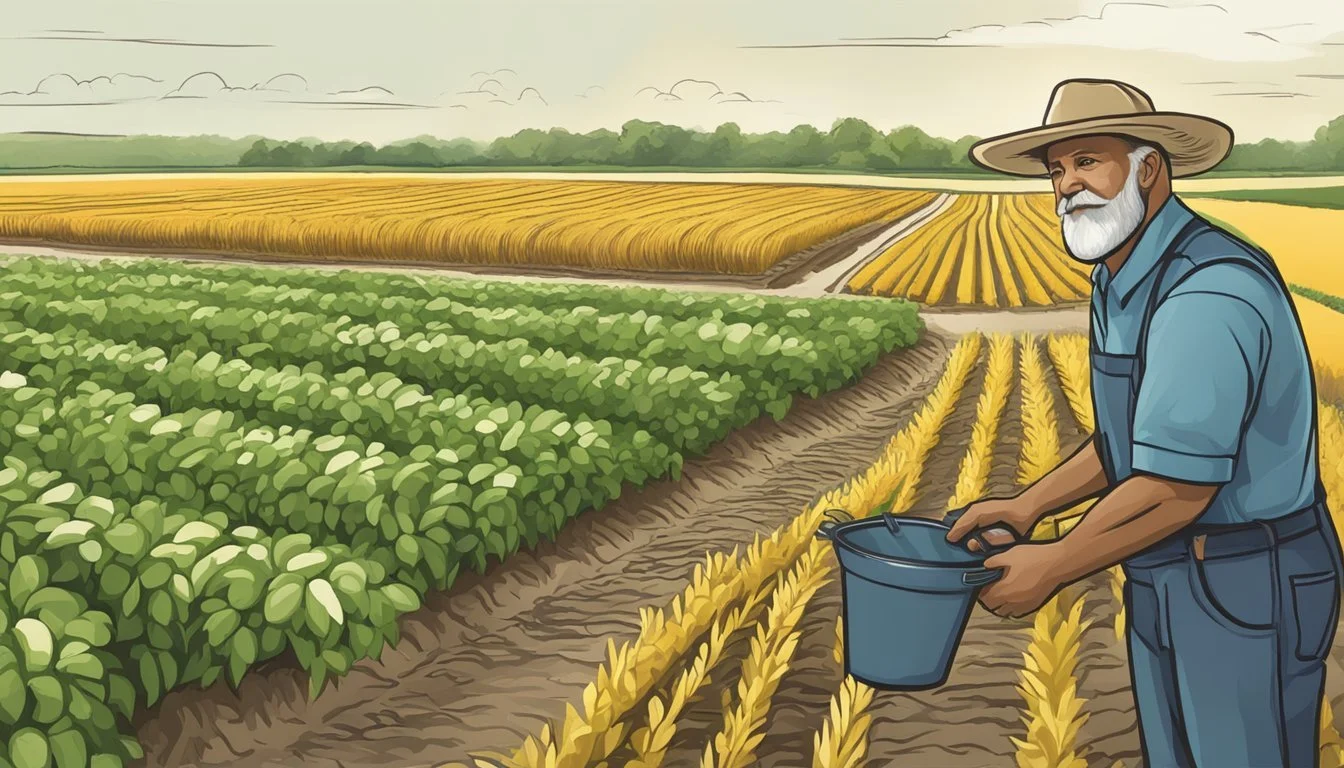Farming Grants Delaware
Opportunities for Agricultural Funding
Agriculture is a vital part of Delaware's economy, and various grant programs are available to support farmers within the state. The Delaware Department of Agriculture offers financial assistance aimed at enhancing the viability and advancement of Delaware's agricultural industry. Such support is critical for the development of agriculture and related businesses, ensuring long-term sustainability and success.
Programs like the Young Farmer Loan Program cater to the needs of new farmers by providing 30-year, no-interest loans for farmland purchases, which is often a significant hurdle for those starting out. On the other side of the spectrum, experienced farmers and ranchers have access to emergency funding through state programs to rehabilitate farmland damaged by natural disasters or carry out water conservation measures during severe droughts.
Delaware's commitment to agriculture extends beyond the traditional farm, recognizing the importance of diversification and ecological responsibility. Grants are also offered for tree planting or management on public lands, benefiting municipalities, homeowner associations, and non-profits. By supporting efforts from farmer relief funds to urban forestry projects, Delaware strengthens the foundation of its agricultural community, ensuring both growth and resilience.
Understanding Farming Grants in Delaware
In Delaware, farming grants are pivotal for advancing agricultural practices, fortifying food systems, and ensuring environmental sustainability. These grants provide critical financial support to address a myriad of challenges and opportunities in the agriculture sector.
Role of Delaware Department of Agriculture
The Delaware Department of Agriculture (DDA) is the primary state agency responsible for providing various forms of financial assistance, including grants and loans. It focuses on enhancing agricultural competitiveness and ensuring the long-term viability of farming in Delaware. Programs like the Seafood Processors Pandemic Response and Safety Block Grant Program demonstrate its commitment to mitigate financial disruptions caused by events like the COVID-19 pandemic.
First State Food System Program
The First State Food System Program, administered by the Delaware Department of Agriculture, aims to strengthen the food supply chain within Delaware. Initiatives under this program allocate funding to support Delaware farmers and related entities, thereby bolstering the local agricultural economy.
Conservation Initiatives
Conservation efforts in Delaware involve grant programs focusing on water quality and land preservation. The state supports programs such as Conservation Easement agreements and the Nutrient Management Relocation Program, which align with environmental stewardship and sustainable agricultural practices.
Specialty Crop Support
The Specialty Crop Block Grant Program is tailored to enhance the competitiveness of Delaware-grown specialty crops. This grant aids in implementing projects that solely encourage the growth and sustainability of the agriculture sector for specialty crop farmers in Delaware.
Economic Competitiveness
Competitiveness in Delaware's agricultural sector is powered through various grant programs that provide financial support for agricultural innovations and market expansion. The DDA actively seeks to support projects that contribute to economic growth and sustainable agriculture.
Disaster Relief and Environmental Adaptation
Delaware farmers and agricultural businesses can access disaster relief funds and initiatives that foster adaptation to environmental changes. This includes developing strategies and systems to cope with challenges like floods, droughts, and hurricanes, ensuring the resilience of the agricultural sector in the face of adversities.
Types of Farming Grants
In Delaware, farmers have access to various grants designed to support different aspects of agricultural enterprises. These grants target specific areas such as crop development, livestock production, market expansion, and sustainable land management practices.
Grants for Crop Development
Delaware provides grants to support the planting, research, and development of crops. These include financial assistance for conventional crops, as well as controlled-environment agriculture like mushrooms and specialty crops such as honey and maple sap. Funding initiatives aim to enhance crop diversity and encourage innovative agricultural practices.
Grants for Livestock Production
Livestock producers in Delaware can benefit from funding designed to improve animal welfare and productivity. Grants are available that may help with the costs of housing, feed, and veterinary care, ensuring the animals meet health standards and yield quality products.
Grants for Market Expansion
Marketing efforts are essential for farmers looking to expand their reach. Delaware offers grants and loans to help develop and implement effective agricultural marketing strategies. The Agricultural Marketing Service plays a role by providing resources that help farmers enter new markets and connect with buyers.
Agroforestry and Land Management
For those invested in integrating agriculture with forest management, Delaware extends grants to promote agroforestry practices. Programs may include incentives for tree planting and initiatives aimed at preserving the natural landscape while also making it productive for agricultural use.
Grants Application Process
In Delaware, securing grants and loans for agricultural activities involves understanding eligibility, preparing documentation, and following specific submission guidelines. Here's a breakdown of each critical step in the grants application process.
Eligibility Criteria
Delaware Department of Agriculture (DDA) grants: These are typically available to a range of entities, including food processors, farmers, and those involved in the supply chain. Eligibility often requires demonstrating a financial impact due to circumstances like the COVID-19 pandemic.
Community Impact Grants: Offered by Delaware Community Foundation (DCF), these require the applicant to be a nonprofit entity seeking to build opportunity and advance equity across Delaware.
Young Farmers Loan Program: Applicants submit a pre-qualification application to verify if they meet the age and farming experience requirements laid out by the DDA.
Documentation and Certification
Every grant or loan program in Delaware requires:
Application Forms: Completed with accurate and up-to-date information.
Proof of Impact: Documentation such as financial statements demonstrating need or impact.
Certifications: For some programs, certification in food safety or other relevant areas is necessary.
Submission Guidelines
The process typically includes:
Deadline Adherence: Ensure submission before the deadline, which is strictly enforced.
Online or Mail-in Options: Depending on the program, agencies accept applications either online, through email, or by traditional mail.
Follow-up Procedures: Most programs have a clearly defined process for communication post-submission, which applicants must heed for updates on application status.
Entities like the Delaware Council on Farm & Food Policy provide specific dates when their application windows open, such as April 19, 2023, for the First State Food System Program. Applicants should regularly check official websites or contact program offices for the most current information.
Support Programs for Specific Groups
In Delaware, targeted support programs are available to aid specific demographics within the agriculture community, focusing on young and beginning farmers as well as veteran farmers. These programs often provide advantageous loan terms and financial assistance to ensure sustainable growth and success in Delaware's agricultural landscape.
Young Farmers and Beginning Farmers Initiatives
The state of Delaware recognizes the challenges that young and beginning farmers face when entering the agriculture industry. To support these individuals:
Financial Assistance: Grants and loans with favorable terms are available to help with purchasing land, equipment, and supplies.
Educational Resources: They offer education and mentorship programs to aid in business planning, technical skills, and farm management.
Eligibility: These initiatives typically target farmers who are in the first 10 years of their agricultural operation and aim to secure the future of farming in the state.
Assistance for Veteran Farmers
Veterans in Delaware are provided with specific programs that acknowledge their service and support their transition into the agricultural sector:
Specialized Loans: The state offers loan programs tailored for veterans, which may feature lower interest rates and relaxed eligibility criteria.
Outreach and Training: Veteran farmers have access to programs that offer training in agricultural practices, business planning, and market development.
Opportunities: By creating an environment of support, Delaware positions veterans to leverage their skills and discipline into successful agricultural businesses.
Managing Grants and Financial Assistance
In Delaware, managing grants and financial assistance for farming involves a structured approach to ensure compliance, successful loan repayments, and reporting of impacts. These processes help organizations and farmers maximize the effectiveness of financial support in the agricultural sector.
Loan Repayment and Financial Planning
Organizations that provide loans for farmland preservation, such as the Delaware Department of Agriculture's Young Farmer Loan Program, require comprehensive financial planning from applicants. Borrowers need to adhere to repayment schedules, often benefiting from favorable terms like zero-interest loans. Essential components of loan repayment include:
Scheduled Payments: Ensuring punctuality and accuracy in repayments to maintain good standing.
Strategic Business Planning: Helping farmers create viable business plans that accommodate loan obligations.
Monitoring and Compliance
Grantees are obligated to adhere to specific regulations and guidelines outlined by the grantor—be it the Delaware Department of Agriculture or federal programs like ARC/PLC authorized by the Farm Bills. Monitoring and compliance include:
Food Safety and Animal Welfare Standards: Compliance with set standards ensures continued financial support.
Adherence to Easement Agreements: In the case of land preservation, following the terms of the easement is vital.
Impact and Reporting
Recipients of financial assistance in Delaware are often required to report on the Positive Impact of the funds on their agricultural operations. Impact and reporting involve:
Documentation of Advances in Delaware's Agricultural Sector: Highlighting improvements in sustainable practices and market growth.
Demonstrating Financial Assistance Effectiveness: Showcasing how the assistance has supported Delaware's farming businesses and contributed to the local economy.
Resources and Further Information
Delaware offers a variety of resources for farmers seeking grant opportunities and further assistance. These are centralized through state and federal agencies, educational workshops, and associations, as well as accessible online portals and email newsletters.
State and Federal Agencies
Delaware's Department of Agriculture (DDA) plays a crucial role in distributing funds to support farmers, including special programs like the Seafood Processors Pandemic Response and Safety Block Grant Program. This program has been established to aid seafood processors and dealers affected by the COVID-19 pandemic.
The USDA Farm Service Agency (FSA) offers programs such as the Dairy Margin Coverage (DMC) program, which assists dairy farmers in managing market fluctuations. The FSA also provides resources and support for distressed farm loan borrowers and a variety of other grant opportunities for Delaware farmers.
Educational Workshops and Associations
There are numerous opportunities for learning and networking through organizations like the University of Delaware Cooperative Extension and Delaware State University Cooperative Extension. These institutions offer training and workshops that are critical for farmers to stay up-to-date with the latest agricultural practices and business management skills.
Associations such as the Delaware Farm Bureau and the Farmer Veterans Coalition are also in place to support Delaware's agricultural community, providing resources and advocating for farmers' interests at both the state and national levels.
Online Portals and Email Newsletters
For those looking for up-to-date information on available grants and farming techniques, signing up for email newsletters from the Delaware Department of Agriculture is a beneficial step. Additionally, online portals provide readily accessible program information and applications.
Businesses and consumers can benefit from educational material available on these online platforms, which offer detailed insights into each grant’s purpose and application process. The Young Farmers Program, for instance, provides relevant information for new farmers looking to acquire farmland, and can be accessed through the DDA's communication channels.
Stay informed on grant applications and agricultural news by subscribing to these resources, ensuring you receive timely updates directly in your inbox.

